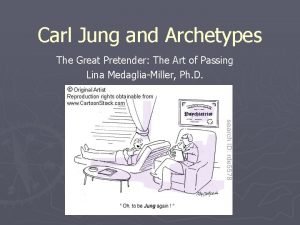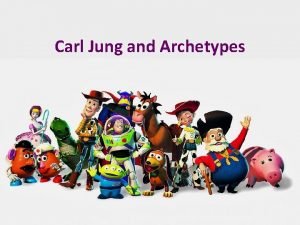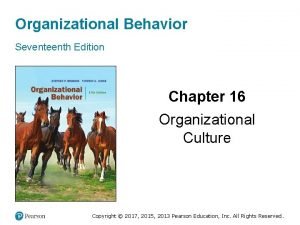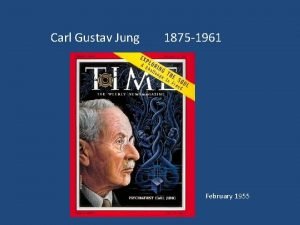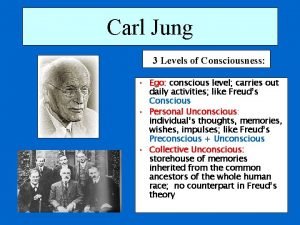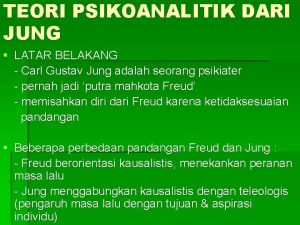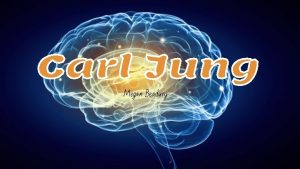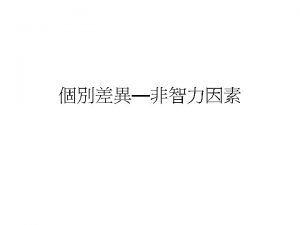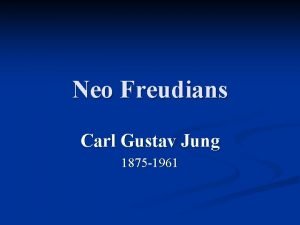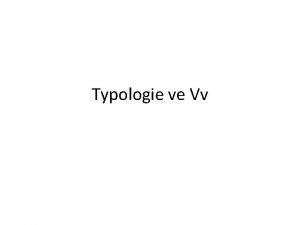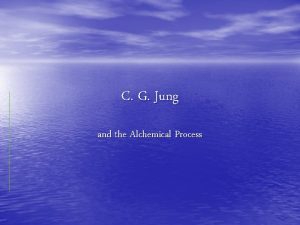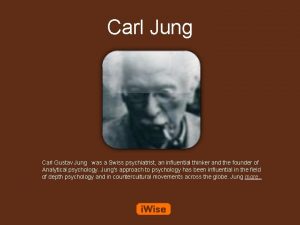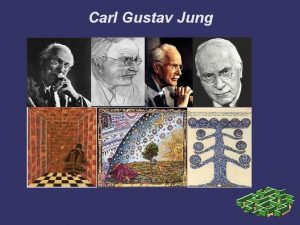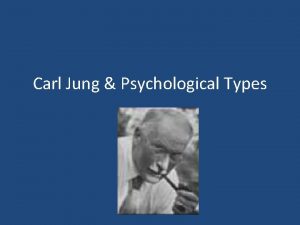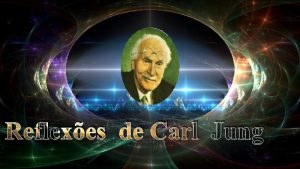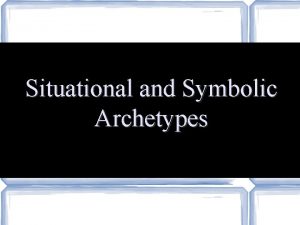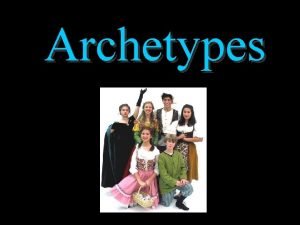Archetypes Carl Jung n Various cultures created similar











- Slides: 11

Archetypes

Carl Jung n Various cultures created similar stories to explain some of life’s most difficult questions. n n n Natural Phenonmena “Why do we die? ” or “Why are we born? ” The “Collective Unconscious” - Refers to common experience of all cultures and humans. n n Jung coined the term “archetype” to explain these patterns. Each individual shares in a common heritage of experiential structures. Living psychic forces that Jung believed we can never be cut loose from. These are our archetypal functions.

Archetypes n Type or pattern. n n From the Greek word archein, meaning type or original pattern. Inherited part of being human. n Inherited idea/mode of thought present in the unconscious of all individuals by virtue of their being members of the human race. Universal. n Come from man’s social & psychological being. n Recurs throughout literature. n n An image, character, pattern of circumstances that recurs throughout literature and thought

A Few Common Archetypes n The King n n n brave fighter Helpless, man saves The Victim n n seductress The Victim Princess n romantic The Warrior The Femme Fatale n Intelligent schemer The Lover n n noble The Trickster n n Needs rescuing The Guide n Wise counselor

The Hero Archetype n Tragic n Noble birth, tragic flaw, downfall, pity n Ex: n Epic n Unusual birth, trials/enemies, final task, returns home n Ex: n Oedipus Gilgamesh Folk n Normal person, transforms, defender of justice n Ex: Frodo Baggins, Robin Hood

Archetype Examples…

Archetypes The Initiates n Young heroes/heroines. n Endure training. Mentor n Teachers/counselors. n Role models. n Often serve as father or mother figures. Companions n Loyal companions on quest. n Willing to face any number of perils in order to be together.

Archetypes (Cont. ) The Devil Figure n Evil incarnate n Tempts hero. n Offers worldly goods in exchange for possession of the soul. Evil Figure with Good Heart n Redeemable figure. n Saved by the nobility or love of the hero. The Outcast n Banished from a social group. n Accused of some crime against his fellow man.

Archetypes (cont. ) The Star Crossed Lovers n Love affair fated to end tragically Creature of Nightmare n monster from darkest part of the human psyche. n Threatens lives of the hero/heroine.

Situational Archetypes The Fall n Fall from higher to lower state. n Loss of Innocence. Death and Rebirth n Cycle of nature, cycle of life. n All humans and nature experience a pattern of death and rebirth. Good versus Evil n Battle between two primary forces. n Good triumphs over evil. n Mankind shows eternal optimism in the continual betrayal of evil despite great odds.

Archetype Assignment Read “The Sky Tree” and “Coyote Finishes His Work” on pages 24 -25 in your textbook. n Answer the “Thinking Critically” questions for each myth on page 26. n n n In place of number five for “Coyote Finishes His Work, ” answer the following question: Identify and explain the various archetypes you see in this myth. When you have completed that, write a short myth (1/2 page-1 page) explaining something in the world using at least on

